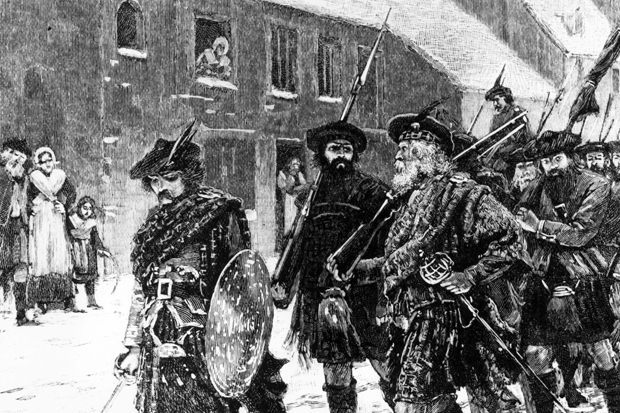In 1707 Scotland surrendered what it had of its independence by the Treaty of Union with England. That independence had been limited since the Union of the Crowns in 1603, and arguably for at least half a century before that. But the treaty was, as Lord Seafield, Chancellor of Scotland, said ‘the end of an auld song’. It was unpopular in Scotland, popular in England because, in the middle of a war with France, it secured the Protestant succession to the throne and meant that the new kingdom of Great Britain no longer had an internal frontier to defend.
Nevertheless, it would be 40 years before domestic peace and security were assured. In that time there were three Jacobite risings — attempts to restore the exiled Stuart kings. The continuing unpopularity of the Union meant that all these insurrections had some support in Scotland, and the last and most improbable of them, in 1745, seriously shook the stability of the Hanoverian throne.
In truth the new kingdom was never a unitary state. Scotland retained it characteristic national institutions: its Presbyterian church, its law and its educational system. As Michael Fry shows in this intelligent and provocative history of 18th-century Scotland, all diverged even further from English practice in the first century of Union, and yet by the end of that century, the Union was more complete, and more completely accepted.
The 18th century was the most remarkable period in the history of Scotland. Before the Union, it had been a poor and insignificant country. Sixty years later Voltaire declared that now ‘there come to us from Scotland rules of taste in all the arts, from epic poetry to gardening. We look to it for all our ideas of civilisation.’ How this astonishing development came about is the theme of this book.








Comments
Join the debate for just £1 a month
Be part of the conversation with other Spectator readers by getting your first three months for £3.
UNLOCK ACCESS Just £1 a monthAlready a subscriber? Log in